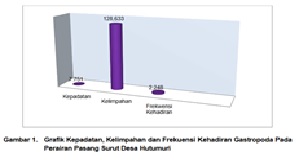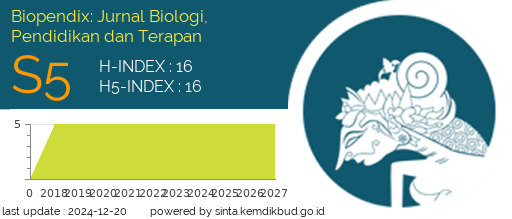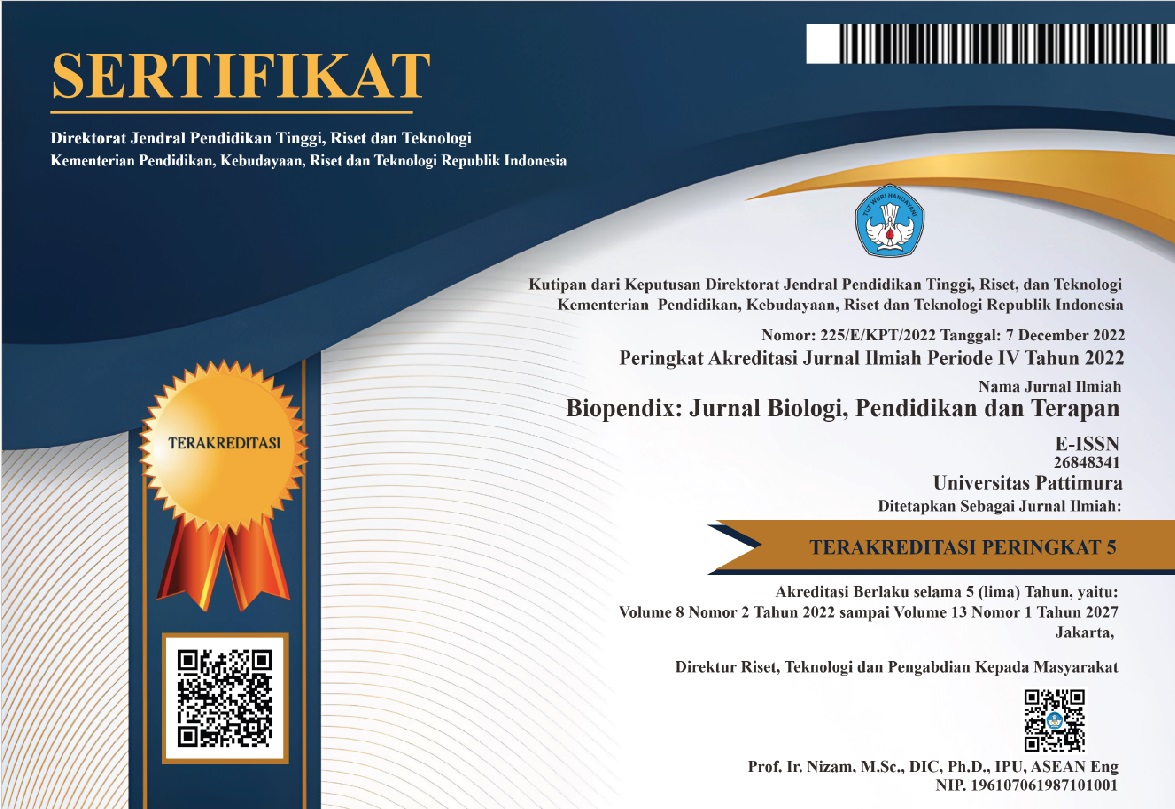STUDI KOMUNITAS GASTROPODA DI PERAIRAN PASANG SURUT DESA HUTUMURI KECAMATAN LEITIMUR SELATAN KOTA AMBON
Abstract
Background: Ecologically, gastropods have an important role to control the population of macroalgae in coral reefs, and economically the snail shell can be used as a source of income for people, especially coastal communities.
Method: The method used is a quadratic linear transect method that is placed perpendicular to the coastline with a combination of plots on the transect line. Data analysis included species composition, diversity, dominance, and evenness of gastropod species.
Results: The results of the study were 1549 gastropod individuals consisting of 46 species of 23 genera, 17 families, 2 subclasses and 4 orders. In general, the diversity and abundance of gastropods in the coastal tidal waters of the hutumuri village are relatively moderate and the species dominance is evenly distributed.
Conclusion: Which consists of 46 species, 21 genera, 17 families and 4 orders. Ecological parameters of the gastropod community in the tidal waters of Hutumuri Village are density value (0.97 ind/m2), abundance value (12.867 in/m) important value (0.2590), diversity value (3.0468), dominance value (0,1445), the value of harmony (0.8010). Dominant index value (D) (0.1445) indicates no species dominance. The diversity pattern of gastropod species in the tidal waters of Hutumuri Village is having a uniform distribution pattern.
Downloads

Authors who publish with this Journal agree to the following terms:
- Author retain copyright and grant the journal right of first publication with the work simultaneously licensed under a creative commons attribution license that allow others to share the work within an acknowledgement of the work’s authorship and initial publication of this journal.
- Authors are able to enter into separate, additional contractual arrangement for the non-exclusive distribution of the journal’s published version of the work (e.g. acknowledgement of its initial publication in this journal).
- Authors are permitted and encouraged to post their work online (e.g. in institutional repositories or on their websites) prior to and during the submission process, as it can lead to productive exchanges, as well as earlier and greater citation of published works




 2
2






